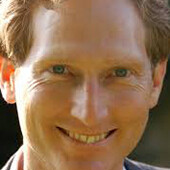"I don't believe that a cartoon is worth a single life. The problem is that there are quite a few people who believe otherwise and then we are confronted with this dilemma: What do we do?"
So said Flemming Rose, who first published cartoons of the Prophet Mohammad in the Danish newspaper Jyllands-Posten in 2005. This year Paris and Copenhagen learned that there are still people willing to kill for cartoons. The dilemma of what to think about their publication remains. What to do, indeed?
Let's start with some pretty uncontroversial observations. First, it is close to foundational in a liberal society that individuals and religious groups do not have a right against being ridiculed. What is more, though unpleasant, a modicum of ridicule benefits those ridiculed: nothing stultifies like an excess of reverence that brooks no humor or criticism. Second, even if ridiculing Islamic faith did violate some right, the shootings in Paris and Copenhagen would be so absurdly disproportionate to the supposed offence as to be utterly unjustified. On these plausible assumptions, it looks like there is no dilemma: publishing cartoons offensive to Muslims is clearly permissible.
But not so fast. Moral theory requires that, in order to be permissible, every action must pass a test of proportionality that weighs the good effects of an act against its bad effects. When the bad effects outweigh the good effects by a sufficient margin, then even a presumptively permissible action can become impermissible.
Consider a fanciful example. Suppose you know a vain and highly unstable character who is extraordinarily touchy about his receding hairline. Moreover, he owns an automatic weapon and has been known to become unhinged and discharge it recklessly in public places when agitated. Clearly it would be profoundly wrong to tease this character about his hair in these circumstances.
Notice that this is not because the vain man has a right against being teased (you don't owe vain men any duty not to tease them). It is rather that one of the foreseeable consequences of teasing him is to endanger the lives of others, and this bad consequence is so disproportionate that it renders the action impermissible.
But hold on, you might say, by teasing the vain man I don't intend to endanger the public. What is more, my teasing wouldn't endanger anyone at all if the vain man were doing what he ought to do. The problem only arises because of the wrongful action of someone else. Why are you holding me responsible for the outcome?
It is true that we are (in general) less responsible for the unintended consequences of our action than for their intended consequences. Moreover, we are (in general) less responsible for consequences of our action that arises from the wrongful intervening acts of others.
Nonetheless, we are still somewhat responsible for such consequences. This case shows us that when the bad effects are sufficiently bad, and the good effects are sufficiently trivial, this can create powerful moral reasons against doing something (even something that you have a liberty right to do it and even when the bad effects are discounted because unintended and arising from wrongful intervening action).
Now, it doesn't take a genius to see that this fanciful case has strong parallels to the case of cartoons depicting the prophet. As we noted above, no religious group has a right not be ridiculed. But a foreseeable effect of publicly ridiculing Islam is that innocent people will be killed. This effect is so bad that it outweighs the likely good that will be achieved by publishing such material. That is true even when we discount the harms for lack of intention and intervening agency. Looked at this way, it seems that publishing cartoons offensive to Muslims is clearly impermissible. As Rose says, no cartoon is worth a single life.
But this too seems insufficient. One way to express the unease is that the preceding argument ignores the political dimension. The murders in Paris and Copenhagen were intended to cow European citizens from exercising rights that they clearly possess. If we assert that it is morally impermissible to exercise our liberties when this will cause others to commit murder, then we seem to undermine those very liberties. Even worse than that, if we censor of our own speech and action, we may ourselves become complicit in the intended ends of the murderers—to silence dissent and ridicule.
It is, indeed, hard not to feel admiration for the courage of figures like Salmon Rushdie and the Charlie Hebdo staff who risk their very lives for a conception of civic liberty. But of course it is not only their own lives that they risk. Six people completely unrelated to Charlie Hebdo died in Paris.
An important question is therefore: How else might we honor and assert those liberties without risking the blood of innocents? One obvious response is to maintain and to celebrate the legal liberty to ridicule, even as we acknowledge the moral case for silence. The legal liberty to say even what is false and offensive is a cherished prize of the Enlightenment. It should be defended and laws that contradict it, such as the prohibition on Holocaust denial, should be dismantled.
Second, individuals like Flemming Rose could assert the moral right to publish offensive material like the prophet cartoons, without actually publishing them. The right way forward, one might think, is to assert the dignity of the liberty without feeling compelled to exercise it.
Formally speaking, one can possess a liberty to do X, even if one chooses not to do X. But is this true in general, across a society? Is a liberty that is consistently not exercised (due to strong moral constraints stemming from the wrongful acts of others) really a liberty in any meaningful sense at all? How will we know that we possess this liberty, and what role will it play in our moral and social life?
These are difficult questions. Once a liberty is publicly challenged in this way, it becomes much harder for society to recover a place of confident self-restraint. Beyond the murders, one of the profound wrongs that the killers inflict on us is to place us in a dilemma from which there is no easy escape.
We know that our own historical response to these challenges has been to slowly and painfully build a consensus around modernity with its protection of individual liberty and private conscience. But, globally, we are still a long way from that consensus, and the prosecution in France of comedian Dieudonné M'bala M'bala for a Facebook post sympathetic to the Paris attacks, shows that even in the West this project remains incomplete and contested.




